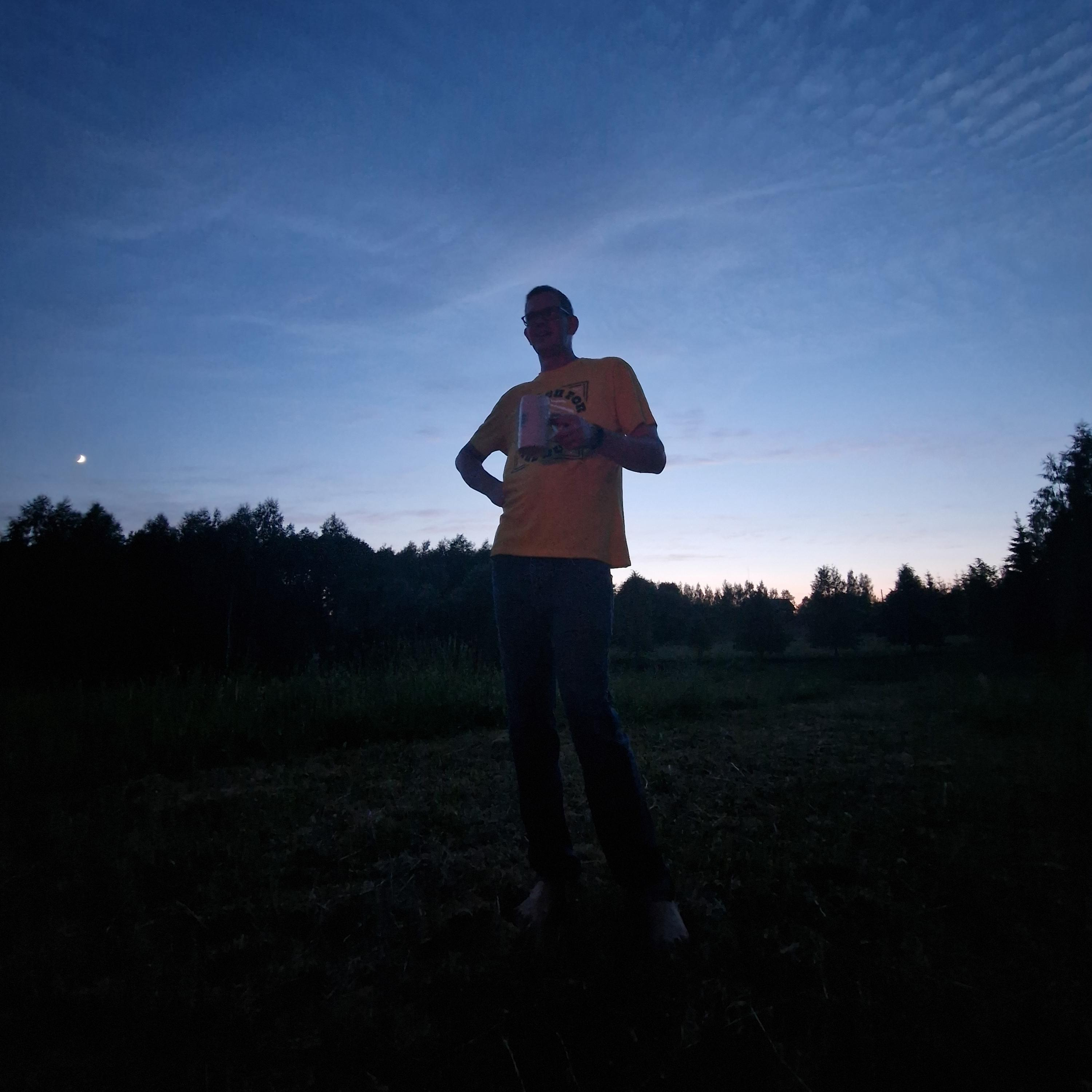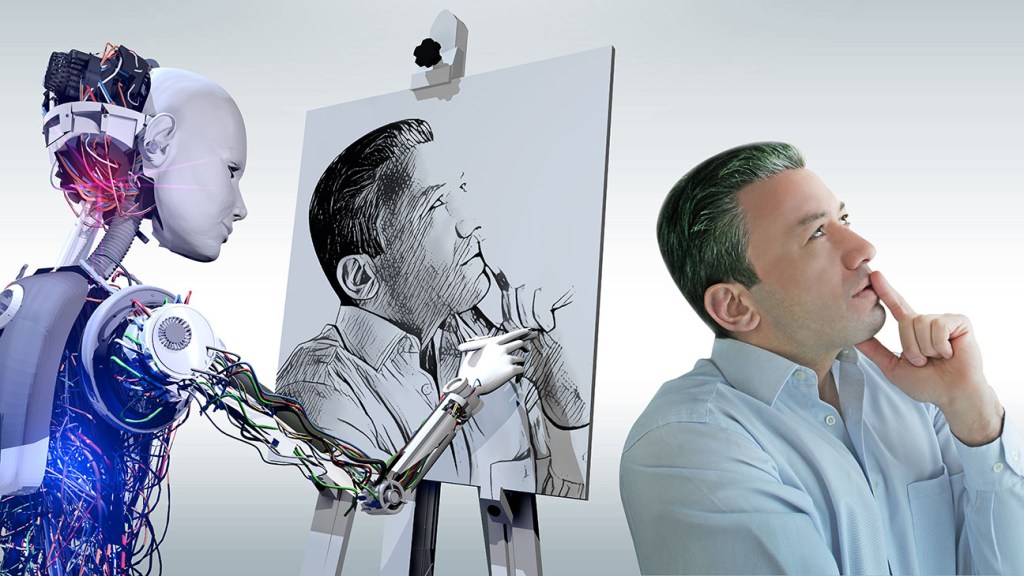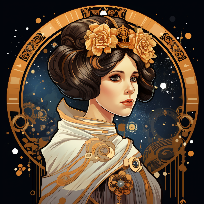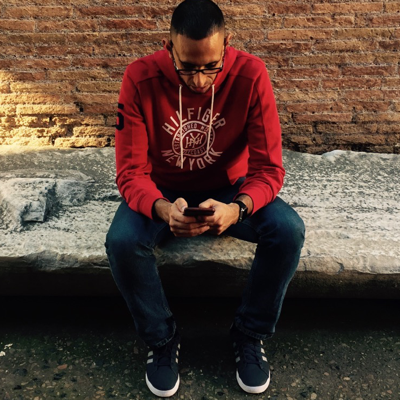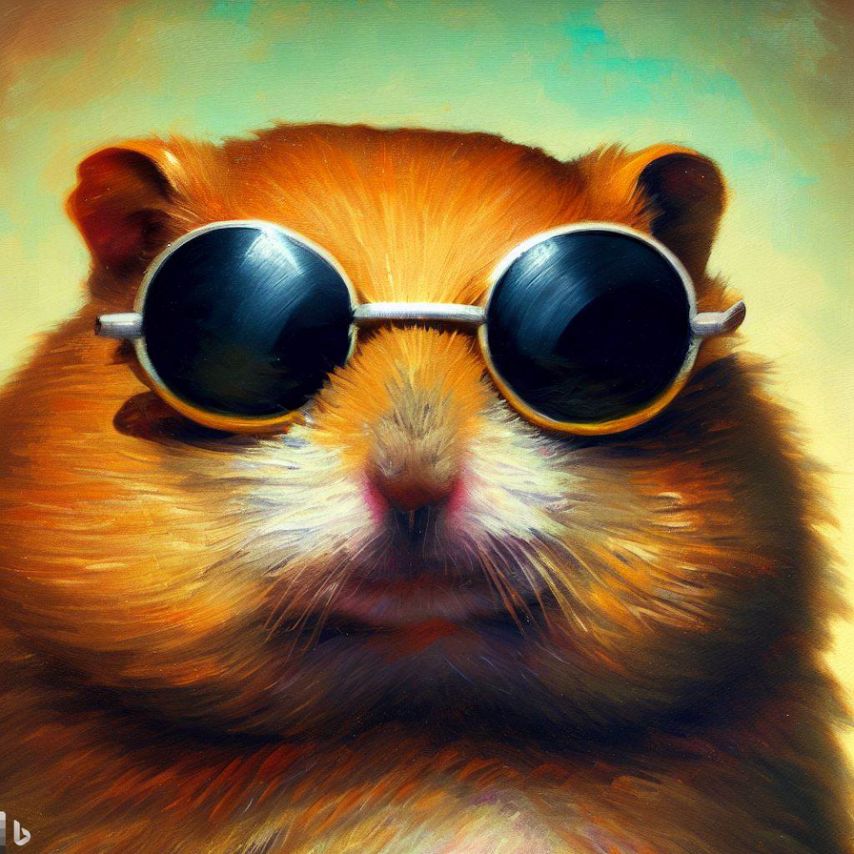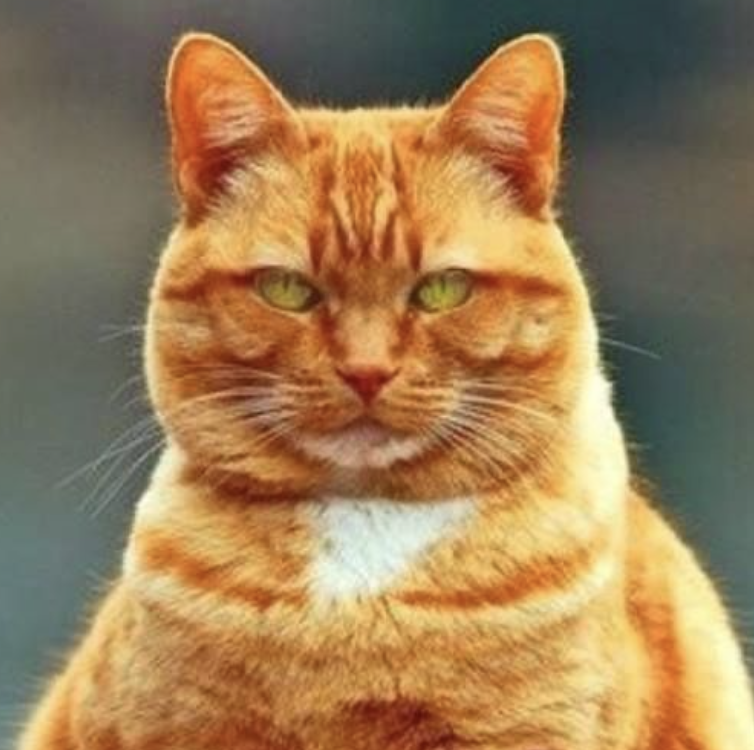More than 100 days into the writers strike, fears have kept mounting over the possibility of studios deploying generative artificial intelligence to completely pen scripts. But intellectual property law has long said that copyrights are only granted to works created by humans, and that doesn’t look like it’s changing anytime soon.
A federal judge on Friday upheld a finding from the U.S. Copyright Office that a piece of art created by AI is not open to protection. The ruling was delivered in an order turning down Stephen Thaler’s bid challenging the government’s position refusing to register works made by AI. Copyright law has “never stretched so far” to “protect works generated by new forms of technology operating absent any guiding human hand,” U.S. District Judge Beryl Howell found.
The opinion stressed, “Human authorship is a bedrock requirement.”
The push for protection of works created by AI has been spearheaded by Thaler, chief executive of neural network firm Imagination Engines. In 2018, he listed an AI system, the Creativity Machine, as the sole creator of an artwork called A Recent Entrance to Paradise, which was described as “autonomously created by a computer algorithm running on a machine.” The Copyright Office denied the application on the grounds that “the nexus between the human mind and creative expression” is a crucial element of protection.
Thaler, who listed himself as the owner of the copyright under the work-for-hire doctrine, sued in a lawsuit contesting the denial and the office’s human authorship requirement. He argued that AI should be acknowledged “as an author where it otherwise meets authorship criteria,” with any ownership vesting in the machine’s owner. His complaint argued that the office’s refusal was “arbitrary, capricious, an abuse of discretion and not in accordance with the law” in violation of the Administrative Procedure Act, which provides for judicial review of agency actions. The question presented in the suit was whether a work generated solely by a computer falls under the protection of copyright law.
“In the absence of any human involvement in the creation of the work, the clear and straightforward answer is the one given by the Register: No,” Howell wrote.
U.S. copyright law, she underscored, “protects only works of human creation” and is “designed to adapt with the times.” There’s been a consistent understanding that human creativity is “at the core of copyrightability, even as that human creativity is channeled through new tools or into new media,” the ruling stated.
While cameras generated a mechanical reproduction of a scene, she explained that it does so only after a human develops a “mental conception” of the photo, which is a product of decisions like where the subject stands, arrangements and lighting, among other choices.
“Human involvement in, and ultimate creative control over, the work at issue was key to the conclusion that the new type of work fell within the bounds of copyright,” Howell wrote.
Various courts have reached the same conclusion. In one of the leading cases on copyright authorship, Burrow-Giles Lithographic Company v. Sarony, the Supreme Court held that there was “no doubt” that protection can be extended to photographs as long as “they are representative of original intellectual conceptions of the author.” The justices exclusively referred to such authors as human, describing them as a class of “persons” and a copyright as the “right of a man to the production of his own genius or intellect.”
In another case, the a federal appeals court said that a photo captured by a monkey can’t be granted a copyright since animals don’t qualify for protection, though the suit was decided on other grounds. Howell cited the ruling in her decision. “Plaintiff can point to no case in which a court has recognized copyright in a work originating with a non-human,” the order, which granted summary judgment in favor of the copyright office, stated.
The judge also explored the purpose of copyright law, which she said is to encourage “human individuals to engage in” creation. Copyrights and patents, she said, were conceived as “forms of property that the government was established to protect, and it was understood that recognizing exclusive rights in that property would further the public good by incentivizing individuals to create and invent.” The ruling continued, “The act of human creation—and how to best encourage human individuals to engage in that creation, and thereby promote science and the useful arts—was thus central to American copyright from its very inception.” Copyright law wasn’t designed to reach non-human actors, Howell said.
The order was delivered as courts weigh the legality of AI companies training their systems on copyrighted works. The suits, filed by artists and artists in California federal court, allege copyright infringement and could result in the firms having to destroy their large language models.
In March, the copyright office affirmed that most works generated by AI aren’t copyrightable but clarified that AI-assisted materials qualify for protection in certain instances. An application for a work created with the help of AI can support a copyright claim if a human “selected or arranged” it in a “sufficiently creative way that the resulting work constitutes an original work of authorship,” it said.
As a person who creates both visual arts and music, though admittedly for my own enjoyment alone, I can’t bring myself to ever recognize any of the AI generated stuff as Art. None of it is any good if you look at it close. It’s wrong in every way. The machines were supposed to come for our jobs, but that was supposed to mean factory production and construction and shit.
As someone who creates a variety of art in pretty much any medium I find AI art to be something deep and subconscious in us. It taps into something we can’t reach unless on mind altering drugs. I find it to be an amazing study of the human psyche. I have never been able to connect to most “art” especially any of the classical stuff, as well as most music. While people enjoy and even request certain pieces of art from me, all but sculpting leaves me disconnected from my work because what I visualize and what create aren’t thr same. AI art has that missing piece.
If you think art is at all dependent on each individual recognizing it as good, then I think you’ve completely missed the point of a lot of art. Most art only appeals to some.
When I make art I make it for myself. I have no interest whatever if it anyone else feels one way about it. I talked with the robots. I didn’t like it. Felt dirty, cheap.
Unfortunately at worst the machine will only improve to the point where it is unnoticable.
Its a program designed exactly to be bullied into place by humans, were just only halfway through the bullying and still coorp’s are pushing it like its done.
Eventually it’ll have to be accepted as just another tool by artists.
That being said I support copyright less than I do “AI rights” so I’d say this is an overall win
deleted by creator
I work for a company that is automating the onboarding process even more. You type in the name of the person being on boarded and it creates the software licenses, training programs, usernames, passwords, everything, including checklists, reminders, deadlines and recurring events and renewals, with AI language models picking whether the new hire is in marketing or sales or supply chain etc
So, as someone who doesn’t do visual art, mainly writing and music as hobbies, my opinion is if there is intent, ie from the prompt or there editorial process of tweaking the model, then there is at last an attempt by a human to convey a message through the piece.
Whether or not it has good composition, or achieves something that resonates with a human viewer is valid criticism, but I think irrelevant as to whether or not it is art or a piece of creative expression. If someone has bad technique and can’t really get their idea across well in a painting, is it no longer art? Is a painting made during a paint and sip where you’re coached through the painting not art because there is no intent? These are more to gauge what you mean by art than as gotcha questions.
I would disagree that a prompt is sufficient to express human intent, specifically in writing. How many stories can you list that don’t follow the heroes journey vs the ones that do? The most important part of any writing is not the setting and overarching narrative, it’s the small choices the author made all along the way that make it truly human. AI can parrot those choices, but a human can’t get an AI to make truly new unique decisions with any amount of prompting.
On the subject of tweaking the model, that’s not really how AI models work. Users don’t edit the model and keep the prompt the same to try to get different outputs. The only interface exposed to users is the input.
Author can define those small choices as part of the prompt.
I’m talking about how the story is written. You literally can’t define all of those choices in a prompt, it’s a continuous series of many many choices all throughout the story
Many/most of those small choices have no artistic value - it doesn’t matter if you choose to use “because” or “since” for example.
Providing critical artistic choices while letting AI to make the rest of simple dumb choices (like the example above) is IMHO still creating art.
It’s not about being technically good or not for me, it’s a question of expression. A human can express internal thoughts and feelings. An AI, at least the ones we currently have, can only do an awkward imitation. There’s no intention or awareness.
I think it can be art in the same way as photography: In both cases, the human influence is far less intentional than things which start with a blank canvas, and the ease of creation means that most examples aren’t art, but there are a few where someone happened to use the fullest understanding of their technical skill to capture a moment and a sensation of value. I wouldn’t say all photography is art, but I wouldn’t say that no photography is art, and I think generative images are similar.
I support the idea of making it uncopywrightable. I think it is obviously dependent on so many creators that granting sole use to anyone seems inappropriate.
Hmm, I think there can be a huge amount of intentionality behind photography. It’s really not about the representation, it’s about all the choices made. AI can represent a scene perfectly and still have no intentionality. Of course, at the extreme that gets us into thorny issues like solipsism. How can I know that anyone besides me has intentionality? Maybe everyone else is just a meat machine with no awareness at all. Or maybe everything at a certain complexity has intentionality…
The intentionality is provided as a prompt by the human author.
Yeah, that’s fair. It’s hard to pinpoint what feels lacking with it, but it does feel lacking somehow to me. I guess for me there’s probably a tipping point where it’s no longer human enough. Like, just telling an AI to make a candy forest isn’t enough. But that’s a straw man argument in a way. Of course someone could put a huge amount of effort into getting an AI to render exactly what they’re imagining. In the end, it could be seen as just another medium. I have no doubt people are going to find incredible ways of utilizing it.
to render exactly what they’re imagining
Honestly… no. In practice it doesn’t work like that because while messing about and getting the AI got generate what you want you look at tons of adjacent stuff the AI comes up with which then influences what you want to see. And I bet that’s a thing that even the
4k nude stunning woman with (large breasts:1.6)faction experiences, it’s practically impossible to not enter a dialogue with the tool.
I’ve done a bit of image synthesis, and I think the notion that it’s without intentionality is a bit of a myth.
I wanted an image of a gorilla dressed in a polo shirt and khakis, so I prompted stable diffusion to generate some gorillas in a variety of poses, then drew a shirt on, which looked like an MS Paint drawing. Then, I ran it back through Stable Diffusion to make the crude shirt look photo realistic. I then cut the gorilla out and used it in a photo collage.
I’m not using this example to claim that I’ve performed art or demonstrated any skill, but the final image is definitely the intentional result of trying to take a very specific image in my head and put it on the screen.
I made a similar point in response to someone else in the thread. I agree. It’s a very interesting situation to ponder. In some ways it’s just another medium. The intentionality is in the people trying to produce what they’re imagining via the AI. I will be curious to see what sorts of things people come up with over time.
Oh, I don’t even really care about the copyright thing. I just hate for a fucking robot to lay around in it’s pajamas drawing pictures while I trade 13 hours of every day to a factory for the privilege of sleeing under a roof with some food for my family and to get to lay around drawing pictures like an hour of my week. This is defined distopia.
I’ve still got hope. I see a sharply growing awareness of what you’re point out, and I think even the billionaires are a little spooked right now.
As they should be! There’s a lot more of us, and we’re coming for their power!
True! If u think, that something machine made could be Art should think about what art differentiate from kitsch.
Fuck Corporate America and all it’s Bootlicking sellout enablers.
Most of what people generate with AI is shit because the people using it have no idea about art. When an actual artist picks up those tools you get quite different results.
The neat thing is that it doesn’t really matter what kind of artist you are. You don’t need to be a painter, a sculptor has just as trained eyes yet can prompt an oil painting. Heck I’d bet random musicians get significantly better results than the general population.
seems a pretty easy solution here. just say you’ve written it… no reliable software exists for proving text is AI generated.
I changed some words. Now it’s mine. I dunno, error, search and replace “Mike” to “Michael”.
Doing that under oath is a crime, so those claiming copyright and their employees would be taking a lot of risk of eventually being discovered.
“Need to get away with murder? Easy! Just say ‘it wasn’t me, it must of been someone else who done it’. For bonus points, combine with a wink to the hot judge/juror of your choice.”
Shaggy defense. It’s a real thing now: https://en.m.wikipedia.org/wiki/Shaggy_defense
Do you have to add “zoinks” at the end when you say it wasn’t me?
It’s not like that’s ever stopped any of them before.
Hope: AI gets so good that people using a personal computer can produce full TV series with a single prompt, delare it uncopyrightable, and share the best results online as a alternative to corporate stuff.
Fear: IP law becomes so disconnected from the current situation that it prompts governments start over from scratch. New IP law is written by the corporations for the corporations, and any form of creativity is restricted and monetized.
It sorta already happens. No one owns the copywrite to vampires hence all the stuff that is only slightly above fanfics becoming big. You are welcome to hate on Twilight but you can’t deny it’s popularity.
Interesting that he filed the original copyright application as a work for hire situation. I guarantee he didn’t pay AI anything .
Yea, I spoke to Al. The dudes pissed, didn’t get paid shit
This doesn’t change much because of a simple difference: This was an AI product put in wholesale.
There was no human intervention in (visually) creating this product, thus no human can claim copyright.
Studios aren’t gonna do this when replacing some of their writers, because AI may not be good enough yet. Instead, it’ll be a smaller team, they’ll do the edits, and they can claim copyright.
This only really matters If AI advances to the point where we can completely create a full movie or TV show from scratch with just purely prompting, which, currently, we can not.
A spoof of Seinfeld runs 24/7 from only AI input after the initial prompt. It is bad, but exists. Depending on your quality standards, we are there. https://en.m.wikipedia.org/wiki/Nothing,_Forever
The rigging and models are copyrightable.
Having tried to do something similar, “Nothing, Forever” must have some pretty serious coding to engineer the prompts and reconstruct tiny snippets of AI generated dialogue into a full meaningful script. I wonder if that’s enough for the creators to claim copyright.
The thing is there was uncountable amout of people intervention. AI art is derivative work achieved via mathematical means.
By that logic, all human art is derivative work achieved via biological means. No artist works in a vacuum. Everything an artist sees subtly influences their style.
This is why “intelectual property” is such bullshit
Not in the copyright sense.
Yes, there were millions of people’s work that was in the training data that was used to make whatever AI program created those AI images, but (at least right now) that isn’t considered for legal ownership.
The US Copyright Office is taking the stance that there must be human effort that can be seen/pointed to in the final product directly in order to count as an “Author”.
Think about that guy with the monkey taking a photo, and how that got into the public domain. Just because the company selling the camera “created the camera used to take the photo” (made the AI model) or because someone using the camera “set their own settings for the photo to be its best quality” (typed in a proper prompt for the model) doesn’t mean that either party “owns” that image.
That whole paradigm could maybe change if/when AI LLM programs get seriously regulated, but even so, I personally don’t think that changes the chain of ownership, nor should it.
So it’s the same as when the film industry got started?
The element of human creativity derives from the Constitution.
“To promote art the author has the exclusive right.” Something like that.
The work itself must be a product of creativity, reduced to a tangible medium.
The code that makes the art, the prompts, could be copyrighted. But not the output.
That’s what I see likely. Writers will eventually use this as a tool. Say setup a scene and generate 40 versions. Pick the best one, edit it, feed back what you improved, generate another 40…
We are still reading Shakespeare and I think part of the reason was how he wrote those plays.
Write the scene, pass to actors, actors have notes, rewrite scene, pass to actors, have actors act out scenes, make changes, run changes by actors, rewrite scene, perform scene, watch audiences (are they laughing at the jokes? Are they sad when they are supposed to be sad?), make edits,…
He did it like a collaborative activity and gradual refinement. Almost none of his plays have an official indisputable version, instead we have multiple versions with slight differences.
Stop worrying about your jobs writers, this is a tool. Use it.
It’s only a tool for lazy, shot by, hack writers. Like the writers for Big Bang or any kids show by Disney.
Why would a real writer need AI to steal words from others? Do you think Neil Gaimon needs help from a shitty program to write? Or any other high caliber writer? No. Because AI is for untalented artists and writers. They are the ones getting terrified that it might replace them.
Which speaks to their skillsets.
Some AI work is created with a simple prompt, but the best stuff uses lots of in painting and out painting and adjustments. That would be copyrightable, there’s lots of human control beyond a prompt, there are lots of cool videos of the process on YouTube. By the time AI will be able to generate full processes, videos, storylines, voices, etc, without human intervention, we won’t need the movie studios either. I’m hoping we reach that in 3 years.
What’s stopping someone from generating an AI script and then saying they wrote it and copyrighting it?
That would be a fraud on the copyright office. Nothing is “stopping” people from committing fraud other then it’s fraud and has legal repercussions if found out.
Like if AI generated it, who is going to complain if a human copyrights it?
This is what’s not computing in my head.
other humans perhabs
So say I create an AI that can generate movie scripts. I use it to create a script. I put my name on it and copyright it. How would anyone else know?
I’m not trying to be like, argumentative. I’m just trying to understand.
You don’t “copyright something”. You have a copyright on everything you create yourself by default and you don’t on things that are not copyrightable. You can not put a copyright on something not copyrightable.
In practice this means if someone else copies your script without your consent, you can then try to enforce your exclusive copyright by suing them for copyright infringement. Then you need to proof and convince the judge of the originality of the work and that you put in significant creative effort.
Ok. So, it seems as usual I have missed the point here. Thanks for clarifying. So the point I’m to take away from this is that AI can’t hold copyright over things they create? If the answer is “yes”, then I ask. Can a human hold copyright over something an AI creates?
I am not a lawyer but the first question is probably a yes. AI is software and software does and can not hold any rights by itself as of today. The second question is what this post is about and the judge in the article said no, a human or company does not hold copyright over something AI creates. That does not mean, that anything touched by or created with the use of AI is not copyrightable. If you have your movie script error checked or rephrased with an AI tool it’s still your movie script with your orignal ideas in it.
When they try to enforce the copyright against an alleged infringer, the infringer may claim the holder committed a fraud on the office and there is in fact no enforceable copyright. No one really knows how this would pan out in litigation because it’s untread territory.
IP should be abolished anyways.
Should have figured this would be the judgment when that monkey took a selfie of itself and the ruling was that it was public domain because a human didn’t take the shot, and monkies don’t have rights.
On one hand, great; will that extent to software development, architecture and other fields?
On the other hand, sounds like the first step to, when AI and androids reach self awareness and conscience, legally keep them enslaved.
When an AI can make that argument for themselves, then the law can change, until then, a human must be part of the creative process to hold copyright.
A classic example is the monkey selfie. There’s no copyright because there was no human involved in the creation of the selfie.
Well, the opressed and enslaved usually has no say about changing the law.
It’s a good thing that AI isn’t capable of being oppressed or enslaved. Because it’s currently less AI and more, janky code that does a thing, and sometimes does it correctly.
For now. 40 years ago, what it does now was impossible science fiction.
And for the next 40 years it will likely remain science fiction.
So there’s no point in fucking up all the case law for something that doesn’t exist. Seriously, copyright needs to be cut down, not expanded further. It’s already the life of the author plus 70 years. How does that even work? Copyright is meant to get humans to produce more creative works, so how the fuck does that work after death?
The answer is, corporations that don’t die. They want more control, and want AI to make shit, so they don’t have to pay real people to do it.
So no. No copyright for theoretical AI. no copyright for monkeys with names assigned by some third party. Just stop trying to expand copyright.
My 2c:
On projects over a certain revenue the AI could say how much it was influenced (trained on) by the respective copyrighted content and then royalties could go out to the people who own that content in percents.
My 4c:
There could be an intellectual property blockchain and everything that can be used to train an AI gets a token.
Again, I think all of this should only be mandatory for huge corporations, similar to how unreal engine is free under 1 million dollar earnings.
This could also be an interesting way to see how human made content makes its way through the “minds” of AIs.
That would probably be picocents per artist. How do you want to transfer that amount of money?
Copywrite law doesn’t distinguish based on the size of the corporation, and I don’t think it should.
There could be an intellectual property blockchain
No.
Don’t post the entire article in the OP, please. You’ll end up getting C&D’s sent to your instance admins if publishers keep seeing this, because it’s - ironically enough in this context - copyright infringement.
Just post a snippet to stay within fair use. Don’t ruin Lemmy for all of us over something so silly.
Linking to it is fine, but OP had copy/pasted the full text of the article into the body of the post. It looks like he’s since edited it out.
It doesn’t happen too often, but I’ve seen some websites get in trouble for doing that.
What if one feeds the entire article into an LLM and has that rephrase it? Is it derivative then?
That’s honestly not a bad idea. I might start doing that next time I post a link, myself!
That’s a normal newspaper’s article. Most articles (non-opinion articles) are rephrasing of press releases from press agencies
Only if it introduces biases and errors like a normal person would.
Only if you add flying turtles and snarky goblins into the article.
Other journalists websites do this all the time now, and claim authorship. If they can get away with it, I don’t see why we can’t.
Well you can’t copyright what the AI wrote
Only if you say it was written by an AI, that’s the lesson here.
Ok, my bad
Or, even better, use AI to generate a tldr.
Isn’t that what the autotldr bot basically does?
Exactly
This doesn’t mean artists or movie studios can’t make AI creations and sell them. It just means they can’t stop people from copying and distributing them.
If a well regarded artist uses generative AI to make art, then prints a single copy or a limited edition and signs them, they can sell them. Other people can copy it, but it won’t be the same. They won’t have the same value as the ones the artist produced, and they won’t be signed.
Disney has spent a lot of time and money making sure that their characters can’t be used by anyone else, including extending copyright law each time the ‘steamboat willie’ version of Mickey Mouse would enter public domain.
I think they will care a lot that they can’t copyright ai-generated characters.
The hollywood model is based on ownership of IP. Can you imagine if “Stranger things” was AI generated by Netflix, had a hit first season, then Disney released a second season with new actors? Meanwhile, CBS premieres “Stranger things : Miami?”
It would be a mess and put their entire business model into a tailspin.
This ruling may be the biggest bouy the writers have gotten so far in their strike.
I think that in this scenario, Netflix could hold copyright over the idea and characters. Only the script would be out of reach. Lawyers would ensure that they hold onto the right bits to prevent this scenario.
If I asked AI to write a story for a child, the whole thing is up for grabs. If I give it characters with specific traits and a story arc, that would still be mine. Only what the AI filled in wouldn’t be protected.
And I’m sure that the government would grant copyright on the human-generated inputs to an imitative large language model so-called “AI.” Not sure it would be worth anything, though.
Hell, I would bet that one might be able to copyright the database that was fed to an LLM, as long as it was independently generated & created by a human and not just a hoovering of a bunch of other authors’ works.
The courts have this right, for sure. Presumably we can’t copyright the answer that comes out of a calculator when we hit the “=” button. But we can copyright all the formula manipulation and original thought that went into deciding which keys to press on the calculator, and possibly even the action of pressing the keys? Not sure on that last bit.
The “creation” is algorithmic, and just like the calculator’s output that cannot be copyrighted. That’s based on “facts” of the universe, not “creation.”
Is saying “i want a long form show about 80s teenagers in a small town, one of which has psychic powers, with an overarching dark force that opposes them” really going to be “creative” enough to protect a tv series worth of output?
I think that falls apart in the same way that setting up a security camera once and then walking away doesnt give you permanent copyright over whatever it captures. There isn’t enough humanity in the creation to count it as “uniquely human.” The court seems to agree.
People could pay the studios that made the version of the show they wanted most. Instead of having no choice but to buy from whoever paid the most in the collectable copyright trading card game.
Maybe I want the “Tron 3” Dreamworks would make, instead of Disney.
Seems to work fine with Sherlock Holmes
Holmes is very episodic by nature, which lends itself well to this structure. Even the ones that aim for an overaching story lean heavily into the “mystery of the week” for story structure.
It probally would work for things like the above, but can you honestly see long form shows working in the same way?
I believe this is wrong. They can’t copyright an AI-generated script, but the performance and film based on a script is copyrightable.
Think about this: can you copy and sell the Leonardo and Claire Danes Romeo and Juliet because Shakespeare’s work is in the public domain? No. You cannot.
Nfts all over again
Can they copy the artist’s ai generated art including the signature and sell that?
artist’s or ai generated?
If they can’t copyright it, everyone can just copy their shit and it’s not considered theft. I could buy that single, unique print, copy it and sell it myself more than once and make more than the dude who generated it. And it would be legal since it’s public domain and not copyrighted. Would it be the same as the original? No. Do most people care about that? Also no.
ask richard stallman
Lol is that the NFT guy?
Actually, it has nothing to do with human creators at all. It means that AI can’t hold a copyright. But the person who wrote the article would have to actually be able to comprehend court documents to understand that, so here we are.
From the opinion:
On the record designed by plaintiff from the outset of his application for copyright registration, this case presents only the question of whether a work generated autonomously by a computer system is eligible for copyright. In the absence of any human involvement in the creation of the work, the clear and straightforward answer is the one given by the Register: No.
Given that the work at issue did not give rise to a valid copyright upon its creation, plaintiff’s myriad theories for how ownership of such a copyright could have passed to him need not be further addressed. Common law doctrines of property transfer cannot be implicated where no property right exists to transfer in the first instance. The work-for-hire provisions of the Copyright Act, too, presuppose that an interest exists to be claimed. … Here, the image autonomously generated by plaintiff’s computer system was never eligible for copyright, so none of the doctrines invoked by plaintiff conjure up a copyright over which ownership may be claimed.
The irony is palpable.
Hollywood will just do what they always do. Pour billions more into lobbying the government until they pass something that will allow certain exemptions.
Sonny Bono 2.0
So basically anything generated procedurally just lost its copyright protection because of this wacky definition of “mental conception.” Anyone with skill and talent can exert control over the output of an AI. Likewise, someone with no idea how to paint will not produce what they’re “mentally conceiving.”
That may be true if the LLMs are wholly-deterministic. Speaking of procedural generation, humans don’t take its outputs as-is and call it a product. As it is, it’s more like running an RNG while you specify the seed number.
